The IEEE International Conference on Data Science and Advanced Analytics (DSAA) aims to be the flagship annual meeting spanning the interdisciplinary field of Data Science. DSAA focuses on the science of data science, as well as the implications of the science for applications to industry, government, and society. From the science side, DSAA spans all of the component fields of data science, including statistics, probabilistic and mathematical modeling, machine learning, data mining and knowledge discovery, complexity science, network science, business analytics, data management, infrastructure and storage, retrieval and search, security, privacy and ethics. From the applications side, DSAA aims both to show researchers important problems and issues that are revealed by real applications, and to show practitioners and users how the science can be applied to realize value. DSAA is intended to reflect the interdisciplinary nature of data science and analytics, as an alternative to the highly specialized disciplinary conferences.
DSAA 2018 in Turin, Italy, is the 5th annual installment of the conference. This year brings the collaboration of the American Statistical Association, to complement the IEEE Computational Intelligence Society and the ACM SIGKDD. This year DSAA also adds the support of the ISI Foundation, which has worked for 35 years to break down traditional silos in the sciences of complexity and data.
Main organizers and chairs
General Chairs
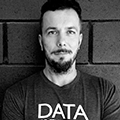
Francesco Bonchi
ISI Foundation

Foster Provost
NYU
Program Chairs:
Research Track
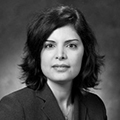
Tina Eliassi-Rad
Northeastern University
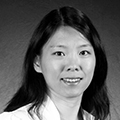
Wei Wang
UCLA
Program Chairs:
Application Track

Ciro Cattuto
ISI Foundation

Rayid Ghani
University of Chicago
Special Session Chairs

Giancarlo Ruffo
University of Turin

Sofus Macskássy
HackerRank
Trends & Controversy Chair

Ricardo Baeza-Yates
NTENT Inc.
Data Science Contest Chair

Marcel Salathé
EPFL
Invited Industrial
Talk Chair

Luca Aiello
Nokia Bell Labs
Tutorial Chairs
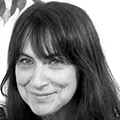
Gabriella Pasi
University of Milano-Bicocca

Richard De Veaux
Williams College
Local Organization Chairs
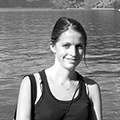
Laetitia Gauvin
ISI Foundation

Michele Tizzoni
ISI Foundation
Publication Chair

Lorenzo Severini
ISI Foundation
Web and Social Media Chair
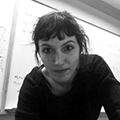
Cigdem Aslay
ISI Foundation
Sponsorship Chairs

Paolo Bajardi
ISI Foundation

Longbing Cao
University of Technology Sydney
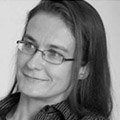
Claudia Perlich
NYU
Advisory and Steering Committees
Advisory Committee

Usama Fayyad
Barclays Bank, UK

Masaru Kitsuregawa
University of Tokyo, Japan
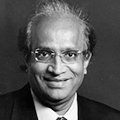
Rao Kotagiri
University of Melbourne, Australia

Vipin Kumar
University of Minnesota, USA

Beng Chin Ooi
National University of Singapore

Xin Yao
University of Birmingham, UK
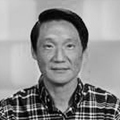
Philip S. Yu
University of Illinois at Chicago , USA
Steering Committee

Longbing Cao
University of Technology Sydney, Australia
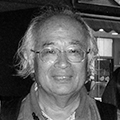
Hiroshi Motoda
Osaka University, Japan

Geoff Webb
Monash University, Australia
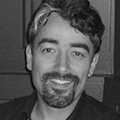
Osmar Zaiane
University of Alberta, Canada
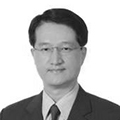
Vincent Tseng
National Chiao Tung University, Taiwan
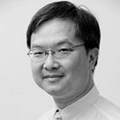
Limsoon Wong
National University of Singapore

Eric Gaussier
Laboratoire d’Informatique de Grenoble, France
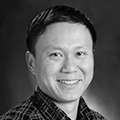
Jian Pei
Simon Fraser University, Canada
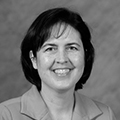
Diane Cook
Washington State University, USA

Bart Goethals
University of Antwerp, Belgium
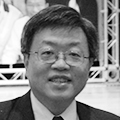
Ming-Syan Chen
National Taiwan University, Taiwan
Keynote Speakers
Bio:
Chris Bishop is a Microsoft Technical Fellow and the Laboratory Director at Microsoft Research Cambridge. He is also Professor of Computer Science at the University of Edinburgh, and a Fellow of Darwin College, Cambridge. In 2004, he was elected Fellow of the Royal Academy of Engineering, in 2007 he was elected Fellow of the Royal Society of Edinburgh and in 2017 he was elected as a Fellow of the Royal Society.
Chris obtained a BA in Physics from Oxford, and a PhD in Theoretical Physics from the University of Edinburgh, with a thesis on quantum field theory. He then joined Culham Laboratory where he worked on the theory of magnetically confined plasmas as part of the European controlled fusion programme.
From there, he developed an interest in pattern recognition, and became Head of the Applied Neurocomputing Centre at AEA Technology. He was subsequently elected to a Chair in the Department of Computer Science and Applied Mathematics at Aston University, where he led the Neural Computing Research Group. Chris then took a sabbatical during which time he was principal organiser of the six month international research programme on Neural Networks and Machine Learning at the Isaac Newton Institute for Mathematical Sciences in Cambridge, which ran in 1997.
After completion of the Newton Institute programme Chris joined the Microsoft Research Laboratory in Cambridge.

Francesca Dominici
Bio:
Dr. Francesca Dominici is a data scientist whose pioneering scientific contributions have advanced public health research around the globe. Her life’s work has focused broadly on developing and advancing methods for the analysis of large, heterogeneous data sets to identify and understand the health impacts of environmental threats and inform policy. Dr. Dominici received her B.S. in Statistics from University La Sapienza in Rome, Italy and her Ph.D. in Statistics from the University of Padua in Italy. She did her postdoctoral training with Scott L. Zeger and Jonathan M. Samet at the Bloomberg School of Public Health at Johns Hopkins University. In 1999, she was appointed Assistant Professor at the Bloomberg School of Public Health and in 2007 she was promoted to Full Professor with tenure. Dr. Dominici was recruited to the Harvard T.H. Chan School of Public Health as a tenured Professor of Biostatistics in 2009. She was appointed Associate Dean of Information Technology in 2011 and Senior Associate Dean for Research in 2013. She is currently the Co-Director of the Harvard Data Science Initiative.

Deirdre Mulligan
Associate Professor in the School of Information at UC Berkeley, faculty Director of the Berkeley Center for Law & Technology and affiliated faculty on the Hewlett funded Berkeley Center for Long-Term Cybersecurity
Bio:
Deirdre K. Mulligan is an Associate Professor in the School of Information at UC Berkeley, a faculty Director of the Berkeley Center for Law & Technology, and an affiliated faculty on the Hewlett funded Berkeley Center for Long-Term Cybersecurity. Mulligan’s research explores legal and technical means of protecting values such as privacy, freedom of expression, and fairness in emerging technical systems. Her book, Privacy on the Ground: Driving Corporate Behavior in the United States and Europe, a study of privacy practices in large corporations in five countries, conducted with UC Berkeley Law Prof. Kenneth Bamberger was recently published by MIT Press. Mulligan and Bamberger received the 2016 International Association of Privacy Professionals Leadership Award for their research contributions to the field of privacy protection. She is a member of the Defense Advanced Research Projects Agency’s Information Science and Technology study group (ISAT); and a member of the National Academy of Science Forum on Cyber Resilience. She is Chair of the Board of Directors of the Center for Democracy and Technology, a leading advocacy organization protecting global online civil liberties and human rights; a founding member of the standing committee for the AI 100 project, a 100-year effort to study and anticipate how the effects of artificial intelligence will ripple through every aspect of how people work, live and play; and a founding member of the Global Network Initiative, a multi-stakeholder initiative to protect and advance freedom of expression and privacy in the ICT sector, and in particular to resist government efforts to use the ICT sector to engage in censorship and surveillance in violation of international human rights standards. She is a Commissioner on the Oakland Privacy Advisory Commission. Mulligan chaired a series of interdisciplinary visioning workshops on Privacy by Design with the Computing Community Consortium to develop a shared interdisciplinary research agenda. Prior to joining the School of Information. she was a Clinical Professor of Law, founding Director of the Samuelson Law, Technology & Public Policy Clinic, and Director of Clinical Programs at the UC Berkeley School of Law.
Mulligan was the Policy lead for the NSF-funded TRUST Science and Technology Center, which brought together researchers at U.C. Berkeley, Carnegie-Mellon University, Cornell University, Stanford University, and Vanderbilt University; and a PI on the multi-institution NSF funded ACCURATE center. In 2007 she was a member of an expert team charged by the California Secretary of State to conduct a top-to-bottom review of the voting systems certified for use in California elections. This review investigated the security, accuracy, reliability and accessibility of electronic voting systems used in California. She was a member of the National Academy of Sciences Committee on Authentication Technology and Its Privacy Implications; the Federal Trade Commission’s Federal Advisory Committee on Online Access and Security, and the National Task Force on Privacy, Technology, and Criminal Justice Information. She was a vice-chair of the California Bipartisan Commission on Internet Political Practices and chaired the Computers, Freedom, and Privacy (CFP) Conference in 2004. She co-chaired Microsoft’s Trustworthy Computing Academic Advisory Board with Fred B. Schneider, from 2003-2014. Prior to Berkeley, she served as staff counsel at the Center for Democracy & Technology in Washington, D.C.

Alessandro Vespignani
Sternberg Distinguished Professor of Physics, Computer Science and Health Sciences and Director of the Network Science Institute atNortheastern University
Bio:
Alessandro Vespignani is the Sternberg Family Distinguished University professor at Northeastern University. He is the founding director of the Network Science Institute and lead the Laboratory for the Modeling of Biological and Socio-technical Systems. Vespignani’s recent work focuses on data-driven computational modeling and forecast of emerging infectious diseases; resilience of complex networks; and collective behavior of techno-social systems. Vespignani is elected fellow of the American Physical Society, member of the Academy of Europe, and fellow of the Institute for Quantitative Social Sciences at Harvard University. He served in the board/leadership of a variety of professional association, journals and the Institute for Scientific Interchange Foundation.
Special Sessions
Special sessions play a big role in promoting relevant focused areas that are not well covered in the main conference tracks, bringing together researchers, industry experts, practitioners and potential users who are interested in different aspects of data science and analytics.
DSAA 2018 features 5 special sessions as listed here. Both the paper submission date and the notification date for all special sessions are the same as those of the main conference tracks. When you submit a paper to a special session, select the respective special session in the IEEE DSAA 2018 submission page. Review will be coordinated by the special session chairs and final decisions will be made by the program co-chairs. Accepted special session submissions will be included into the Special Session part of the main conference proceedings to be published by IEEE and included into the IEEE Xplore Digital Library.
- Data Science for Social Good
- Data Science in Computational Psychiatry and Psychiatric Research
- EnGeoData’2018: Environmental and Geo-spatial Data Analytics
- Opportunities and Risks for Data Science in Organizations: Banking, Finance, and Policy
- SeCredISData – Sentiment, Emotion, and Credibility of Information in Social Data
Submission
Please see Call for Special Session Papers for how to submit a paper.
Contact for inquiries about Special sessions
If you have any inquiry about the special sessions, please contact us with the following e-mail address: dsaa2018_ss@isi.it.
Special Session Chairs

Giancarlo Ruffo
University of Turin

Sofus Macskássy
HackerRank
Home Online
Main Organizers and Chairs Online
Advisory Steering Committee Online
Keynote Speakers Online
Special Sessions Online

